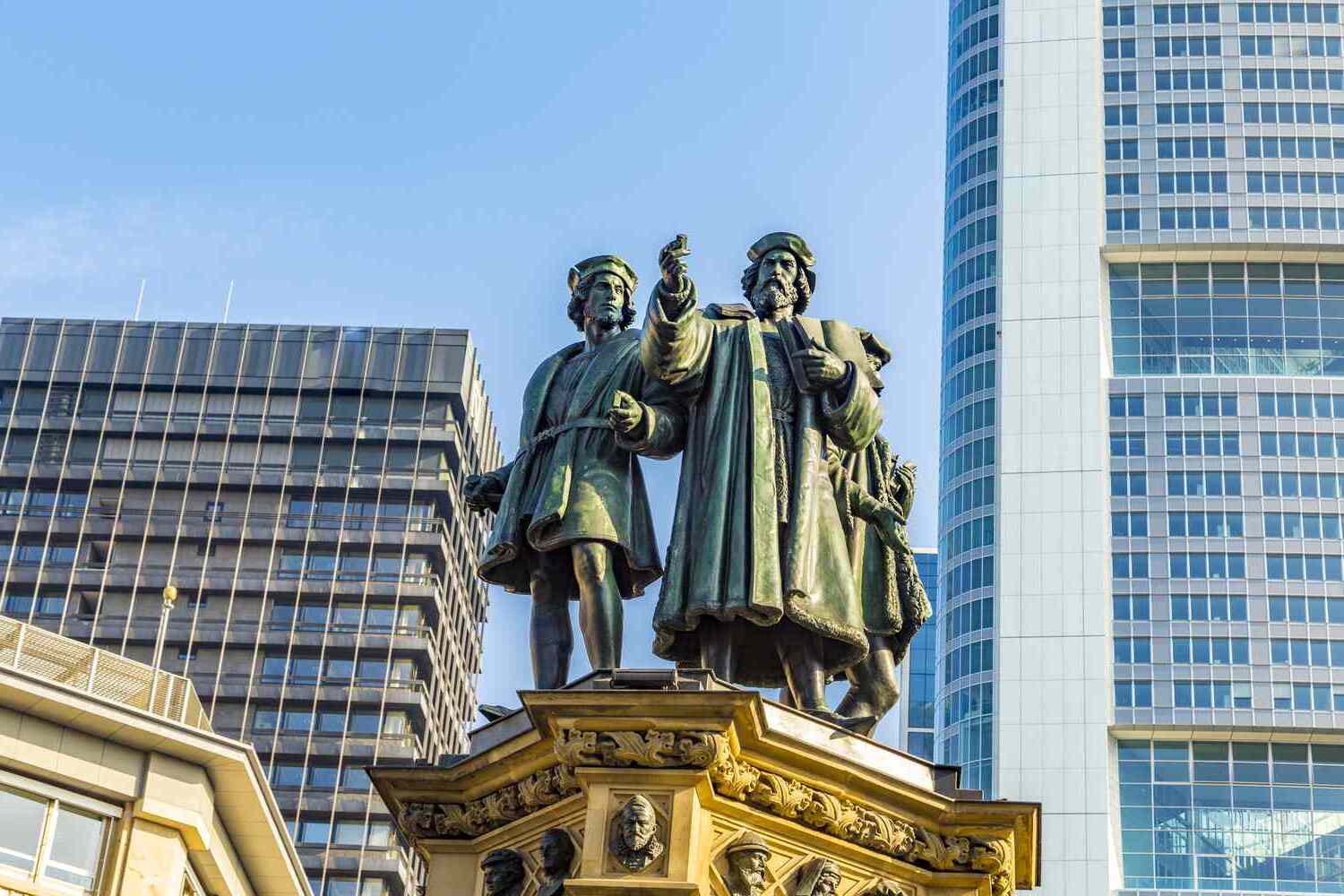
Who was Johannes Gutenberg? Johannes Gutenberg, a name etched in history, revolutionized the way we share information. Born around 1400 in Mainz, Germany, he is best known for inventing the movable-type printing press. This groundbreaking invention transformed the world by making books more accessible and affordable. Before Gutenberg, books were painstakingly copied by hand, a process that took months or even years. His press allowed for the mass production of books, spreading knowledge far and wide. Gutenberg's most famous work, the Gutenberg Bible, remains a testament to his ingenuity. Why is Johannes Gutenberg important? He laid the foundation for the modern knowledge economy, making him a pivotal figure in history.
Who Was Johannes Gutenberg?
Johannes Gutenberg, a name synonymous with the printing revolution, changed the world with his invention. His contributions laid the foundation for the spread of knowledge and literacy.
- Johannes Gutenberg was born around 1400 in Mainz, Germany.
- He is best known for inventing the movable-type printing press.
- Gutenberg's invention allowed for the mass production of books, making literature accessible to the general public.
- Before his printing press, books were copied by hand, a process that could take months or even years.
- The first major book printed using his press was the Gutenberg Bible in 1455.
The Impact of Gutenberg's Printing Press
Gutenberg's printing press didn't just change how books were made; it transformed society. Here's how his invention influenced the world.
- The printing press played a crucial role in the Renaissance, spreading new ideas and knowledge.
- It helped in the Reformation, allowing Martin Luther's 95 Theses to be widely distributed.
- The press enabled the Scientific Revolution by making scientific works more accessible.
- It contributed to the Age of Enlightenment, fostering an environment where ideas could be freely exchanged.
- Gutenberg's invention is often considered one of the most important developments in human history.
Gutenberg's Life and Struggles
Despite his groundbreaking invention, Gutenberg faced numerous challenges throughout his life.
- Gutenberg was not wealthy and struggled financially for much of his life.
- He was involved in a legal dispute with Johann Fust, his financier, which resulted in Gutenberg losing control of his printing business.
- Despite these struggles, he continued to work on improving his printing techniques.
- Gutenberg never became rich from his invention and died in relative obscurity in 1468.
- He was buried in the Franciscan church in Mainz, which was later destroyed, leaving his exact burial site unknown.
The Legacy of Johannes Gutenberg
Gutenberg's legacy lives on, influencing countless aspects of modern life.
- The term "Gutenberg Revolution" refers to the profound changes brought about by his printing press.
- Gutenberg's work laid the groundwork for the modern publishing industry.
- His invention is credited with helping to standardize languages and grammar.
- The Gutenberg Bible is considered one of the most beautiful books ever printed.
- In 1997, Time-Life magazine named Gutenberg the "Man of the Millennium."
Fun and Lesser-Known Facts About Gutenberg
Beyond the well-known facts, there are some intriguing tidbits about Gutenberg's life and work.
- Gutenberg's full name was Johannes Gensfleisch zur Laden zum Gutenberg.
- He initially trained as a goldsmith before turning to printing.
- The exact number of Gutenberg Bibles printed is unknown, but it's estimated to be around 180 copies.
- Only 49 copies of the Gutenberg Bible are known to exist today.
- Gutenberg's printing press was not the first, but it was the most efficient and practical, making it revolutionary.
Gutenberg's Legacy Lives On
Gutenberg's invention of the printing press changed the world forever. His work made books more accessible, spreading knowledge far and wide. Before his press, books were rare and expensive, but Gutenberg's innovation brought reading to the masses. This shift led to the Renaissance, the Reformation, and the Scientific Revolution. Gutenberg's press laid the groundwork for modern education and communication.
His legacy isn't just about technology; it's about the power of ideas. By making information available to everyone, Gutenberg helped create a more informed and connected world. Today, we still feel the impact of his work in every book, newspaper, and digital article we read. Gutenberg's contribution reminds us of the importance of innovation and access to information. His legacy lives on, proving that one idea can indeed change the world.
Was this page helpful?
Our commitment to delivering trustworthy and engaging content is at the heart of what we do. Each fact on our site is contributed by real users like you, bringing a wealth of diverse insights and information. To ensure the highest standards of accuracy and reliability, our dedicated editors meticulously review each submission. This process guarantees that the facts we share are not only fascinating but also credible. Trust in our commitment to quality and authenticity as you explore and learn with us.


